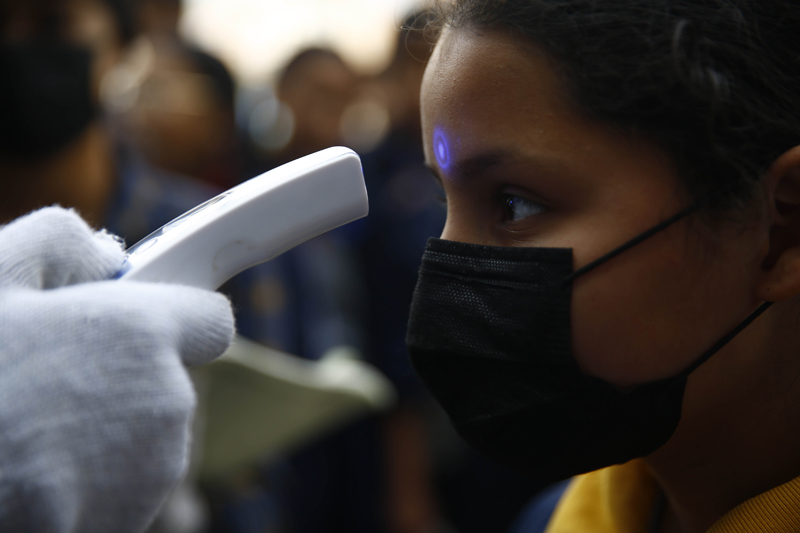Mental effects of lockdown on children a matter of growing concern among parents
Setting a timetable for using internet and playing games involving children in creative activities will help. There should be proper communication
Kathmandu, April 11
The effect of coronavirus lockdown on the mental health of children has become a grave concern for parents. Many children are glued to television, mobile phones and other electronic devices and internet making them vulnerable to mental health problems.
“There is risk of children getting addicted to internet and gaming,” said Dr Neena Rai, associate professor at Department of Psychology, KIST Medical College, Imadol, and Chirayu Hospital.
As the country has gone through 20 days of lockdown, many children staying at home are missing school and contacts with friends and relatives.
“It was always fun to go to school. As the school has been closed I have not been able to play with my friends. I miss school. Me and my cousin are spending time playing games on mobile phones and tablets. My mother scolds me at times for spending too much time playing,” said Bhaswor Rimal, a seven-year-old student at Campion School, Lagankhel.
“I spend my time playing games on the tablet. My mother hides it because I am constantly at it. When she hides it, I become angry with her. There is a kind of ‘war’ with her,” said Alok Paudyal, a sixth grader at Radiant Public Boarding School, Syuchatar.
Children and adolescents are also finding it difficult to spend time with parents. “I have been spending time using social media, talking to many others. I usually sit alone,” said Shreya Gautam, a 17-year-old Grade X student at Reliance International Academy, Kapan.
The government has postponed the Secondary Education Examination scheduled from March 19. A total of 482,219 students were to appear for the SEE. However, these children have not been able to focus on their studies at present.
“My school conducts online class regularly, but I am unable to concentrate. I have been watching serials and films, listening to music in my computer to pass the time rather than preparing for the SEE,” said Jyoti Lama a tenth grader at Reliance International Academy, Kapan.
Many parents have become concerned about the mental health of their children.
“My child is missing his friends. He misses the excitement of going to class. He is continuously glued to his mobile and tablet,” said Gayatri Dhakal, Bhaswor’s mother, a resident of Nakkhu.
Many children are spending too much time surfing the internet and becoming vulnerable to net addiction, which could affect their mental health.
“I have become quite addicted to the internet. If the internet supply is interrupted I get irritated,” said Lama.
The worldwide death toll from the new coronavirus has surpassed 101,000 and continuously watching news and death reports too can make children stressful regarding their own and their relatives’ lives.
“There is a kind of fear inside me regarding my father’s health. He is away from Kathmandu. I often think about his health and worry,” said Lama.
Constant exposure to bad news can affect a child’s mental health. They can be scared about contracting coronavirus, concerned about family members, and worried. Children can become irritated, throw tantrums and make excuses for staying alone as they get hooked to the internet,” said Dr Rai.
“Children were living a structured life — going to school, studying, playing, doing assignments — but now, everything has stopped. This can affect their mental health,” said Dr Rai.
Doctors have advised parents not to vent their frustrations on children if they want to help children cope with the current global pandemic and to ensure their mental health. Those under medication for mental illness should not stop taking their medicines as the illness can be aggravated.
Children are also likely to get addicted to substance abuse such as alcohol, opioids and cannabis if they are mentally stressed, according to the doctor.
“Parents should focus on keeping children safe and healthy.
Setting a timetable for using internet and playing games, involving children in creative activities will help. There should be communication with children,” said Dr Rai.
A version of this article appears in e-paper on April 12, 2020 of The Himalayan Times.






